#industrial waste water management
Text
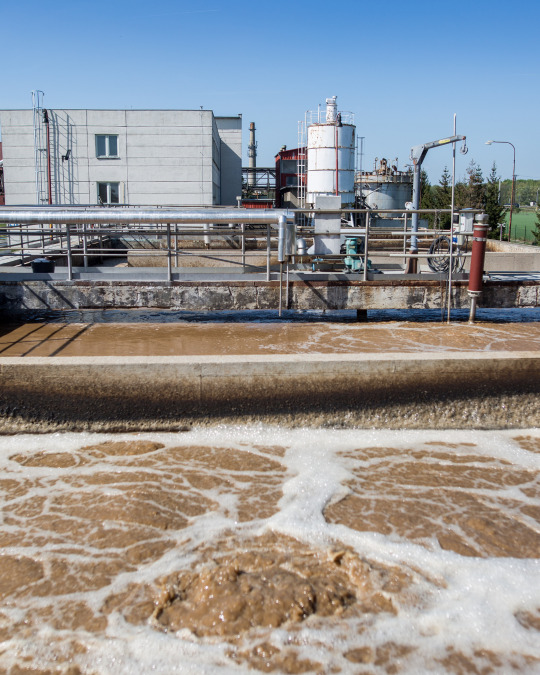
Conventional Activated Sludge Wastewater Treatment Plant | Aerobic Treatment
Wipro Water offers the activated sludge process – ASP, a conventional aerobic biological treatment for complex industrial wastewater to meet the statutory standards.
#activated sludge treatment plant#activated sludge treatment#conventional activated sludge wastewater treatment plant#conventional activated sludge treatment#wastewater treatment process#industrial waste water management#industrial water and wastewater treatment#industrial wastewater treatment technologies
0 notes
Text
8th Meeting, 15th Session of the Expert Group on Resource Management.
Session 4: Decision Support – 2
Chair: Karen Hanghøj
Agenda item 7.2: Development and deployment of UNFC - Groundwater Resources Working Group Update (ECE/ENERGY/GE.3/2024/7)
Peter van der Keur, Chair, Groundwater Resources Working Group and Geological Survey of Denmark and Greenland (GEUS)
UNFC Application to Renewable Energy
Gioia Falcone, Co-Chair, Renewable Energy Working Group
Recycling construction materials
Julia Stegemann, Professor of Environmental Engineering, University College London, UK
Sand and construction materials
Tom Bide, Senior Scientific Officer, British Geological Survey
AMREC-PARC Case study
Bob Felix Occiti, Senior Policy Officer - Research Oil and Gas Program, African Energy Commission
Joint UNFC – PRMS Financial Reporting Template
Victor Babashev, Chair, Petroleum Working Group and Ignatiy Volnov, Regional Director Russia and Caspian, Society of Petroleum Engineers
Discussions Agenda item 6: Responsible resource governance: Development and deployment of UNRMS - Critical Minerals Markets Information System (CriMMIS) Concept
Simon Strickland, Senior Adviser on Strategy, Cabinet Office, UK
Transparency in Critical Raw Material Value Chains
Elisabeth Tuerk, Director, Economic Cooperation and Trade Division, UNECE
Circular Metals
Brian Cantor, Director, UK ICE-SRM for Circular Materials, BCAST, Brunel University, UK
UNRMS: Considerations for Steel Recycling
Cameron Pleydell-Pearce, Director, SUSTAIN Steel Hub, Swansea University, UK
Ukraine: Resource management challenges and opportunities
Roman Opimakh, Director General, Ukrainian Geological Survey
Activities of the UNECE Hydrogen Task Force
Branko Milicevic, UNECE
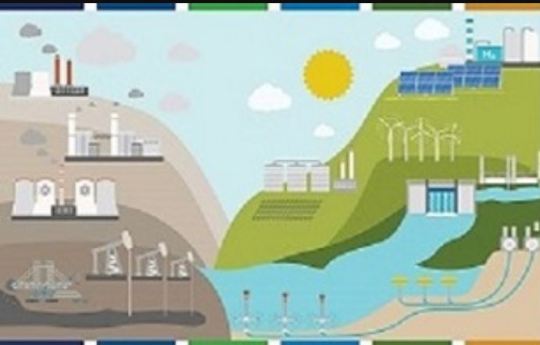
#resource management#expertgroup#extractiveindustries#egrm15#United Nations Resource Management System (UNRMS)#United Nations Framework Classification for Resources (UNFC)#Assuring sustainability in resource management#Expert Group on Resource Management#industrial water#mining wastes#sustainable water management#sustainable energy
0 notes
Text
The Environmental Impact of Waste Water Treatment Companies in India
Introduction
Waste water treatment companies play a crucial role in addressing water pollution and safeguarding the environment in India. In this article, we will explore the environmental impact of these companies and their efforts to mitigate pollution while promoting sustainability.
Understanding the Problem
India faces significant challenges related to water pollution, with industrial and domestic waste water contributing to the degradation of water bodies across the country. The discharge of untreated waste water into rivers and lakes not only pollutes the water but also poses serious risks to human health and aquatic ecosystems.
The Role of Waste Water Treatment Companies
Waste water treatment companies in India are at the forefront of efforts to address water pollution and promote environmental sustainability. By treating and recycling waste water, these companies help reduce pollution levels and ensure that water resources remain clean and safe for consumption.
Environmental Impact
1. Pollution Reduction
One of the primary benefits of waste water treatment companies is the significant reduction in pollution levels. By removing harmful contaminants from waste water before it is discharged into water bodies, these companies help prevent further degradation of the environment.
2. Preservation of Ecosystems
Cleaner water bodies support diverse aquatic ecosystems, including fish, plants, and other organisms. Waste water treatment companies contribute to the preservation of these ecosystems by minimizing the impact of pollution on aquatic life and biodiversity.
3. Protection of Public Health
Untreated waste water contains pathogens and pollutants that can pose serious risks to human health. Waste water treatment companies help protect public health by removing harmful substances from waste water, ensuring that drinking water sources remain safe and clean.
Sustainable Practices
Many waste water treatment companies in India are embracing sustainable practices to minimize their environmental footprint. From implementing energy-efficient technologies to promoting water conservation measures, these companies are committed to reducing their impact on the environment while fulfilling their mission of providing clean water solutions.
Conclusion
Waste water treatment companies play a vital role in addressing water pollution and promoting environmental sustainability in India. By treating and recycling waste water, these companies help reduce pollution levels, preserve ecosystems, and protect public health. It is essential to support and invest in these companies to ensure a cleaner and healthier environment for future generations.
If You Want to Explore More About India's Waste Water Treatment Companies then Visit the Site: Jasmino
#industry#technology#manufacturing#manufacturing industry#wastewatertreatment#waste management#watertreatment#watermanagement#safe drinking water
0 notes
Text
/PRNewswire/ -- Industrial Filtration Market is expected to reach USD 47.1 billion by 2029 from USD 37.1 billion in 2024 at a CAGR of 4.9% during the forecast period according to a new report by MarketsandMarkets™.
#industrial filtration#industrialization#industrial#energy#energia#power generation#utilities#utility#power plant#power plants#industrial wastewater treatment#industrial waste#wastewatertreatment#wastewater treatment#zero waste#waste management#filter press#bag filter#filtration#water filtration#oil and gas industry#enviromental
1 note
·
View note
Text
Water and Wastewater Treatment Equipment Market, Analyzing Market Forces, Technological Advancements, and Environmental Impacts
The global water and wastewater treatment equipment market size is anticipated to reach USD 90.0 billion by 2030, registering a CAGR of 4.6% over the forecast period, according to a new report by Grand View Research, Inc. The market is driven by increasing demand for clean and safe water in both developed and emerging economies. This is due to growing concerns over water pollution and scarcity, and the need for effective wastewater management.
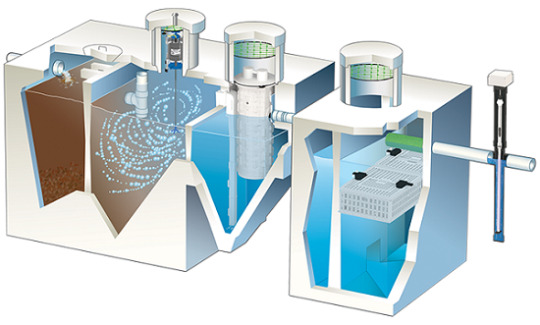
Water And Wastewater Treatment Equipment Market Report Highlights
Asia Pacific accounted for the largest revenue share of the global market in 2023, accounting for 35.1%, and is expected to maintain its dominance throughout the forecast period. This can be attributed to the presence of a strong consumer base that has led to significant demand for water and wastewater treatment equipment
By application, the municipal segment dominated the market with a revenue share of 66.0% in 2023. The increasing initiatives undertaken by governments, strict environmental regulations, and increasing awareness regarding water treatment are some of the factors contributing to the growth of the municipal segment over the forecast period
By process, the tertiary treatment segment dominated the market with a revenue share of 44.2% in 2023. Some of the drivers for the increasing demand for tertiary wastewater treatment are environmental protection, water scarcity, and the increasing demand for clean water. As these issues continue to be major concerns across the world, the demand for tertiary wastewater treatment is expected to grow over the forecast period
Major key players frequently engage in mergers & acquisitions and new product launches to maintain their market shares. For instance, in March 2022, Pentair plc, announced the definitive agreement to acquire Manitowoc Ice. The move was taken by the company to enhance its commercial water solutions platform and cater to the demand from the food service industry
For More Details or Sample Copy please visit link @: Water And Wastewater Treatment Equipment Market Report
Furthermore, the demand for decentralized wastewater treatment systems is expected to increase over the projected period, as these systems offer several advantages such as low operating costs, high treatment efficiency, and easy maintenance. Several companies are focusing on developing innovative decentralized wastewater treatment systems that can be easily installed in residential and commercial buildings.
Population growth, urbanization, increasing industrialization, and the need for clean water for various purposes such as drinking, agriculture, and industrial processes all drive demand for water and wastewater treatment equipment. Government regulations aimed at protecting the environment and ensuring public health also have an impact on the demand for water and wastewater treatment equipment.
The market players are constantly undertaking strategic initiatives such as mergers, acquisitions, partnerships, and new product launches to gain a competitive advantage. For instance, Ceco Environmental, a provider of air pollution control solutions, announced the acquisition of Compass Water Solutions, a provider of water and wastewater treatment equipment. The acquisition will enable Ceco Environmental to integrate Compass Water Solutions’ critical engineered solutions with its industrial water capabilities.
WaterAndWastewaterTreatmentEquipmentMarket #WaterAndWastewaterTreatmentEquipment #WaterTreatment #WastewaterManagement #EnvironmentalEngineering #SustainableTechnology #CleanWaterSolutions #IndustrialWaterTreatment #WaterPurification #GreenInfrastructure #InnovationInWaterManagement #WaterQualityControl #WastewaterRecycling #MarketTrends #EnvironmentalCompliance #SmartWaterTechnologies #RegulatoryFrameworks #EcoFriendlySolutions #EmergingTechnologies #ResourceRecovery
#Water and Wastewater Treatment Equipment Market#Water and Wastewater Treatment Equipment#Water Treatment#Waste water Management#Environmental Engineering#Sustainable Technology#Clean Water Solutions#Industrial Water Treatment#Water Purification#Global Market Analysis#Green Infrastructure#Innovation In Water Management#Water Quality Control#Waste-water Recycling#Environmental Compliance#Smart Water Technologies#Regulatory Frameworks#Eco-Friendly Solutions#Emerging Technologies#Resource Recovery
0 notes
Text
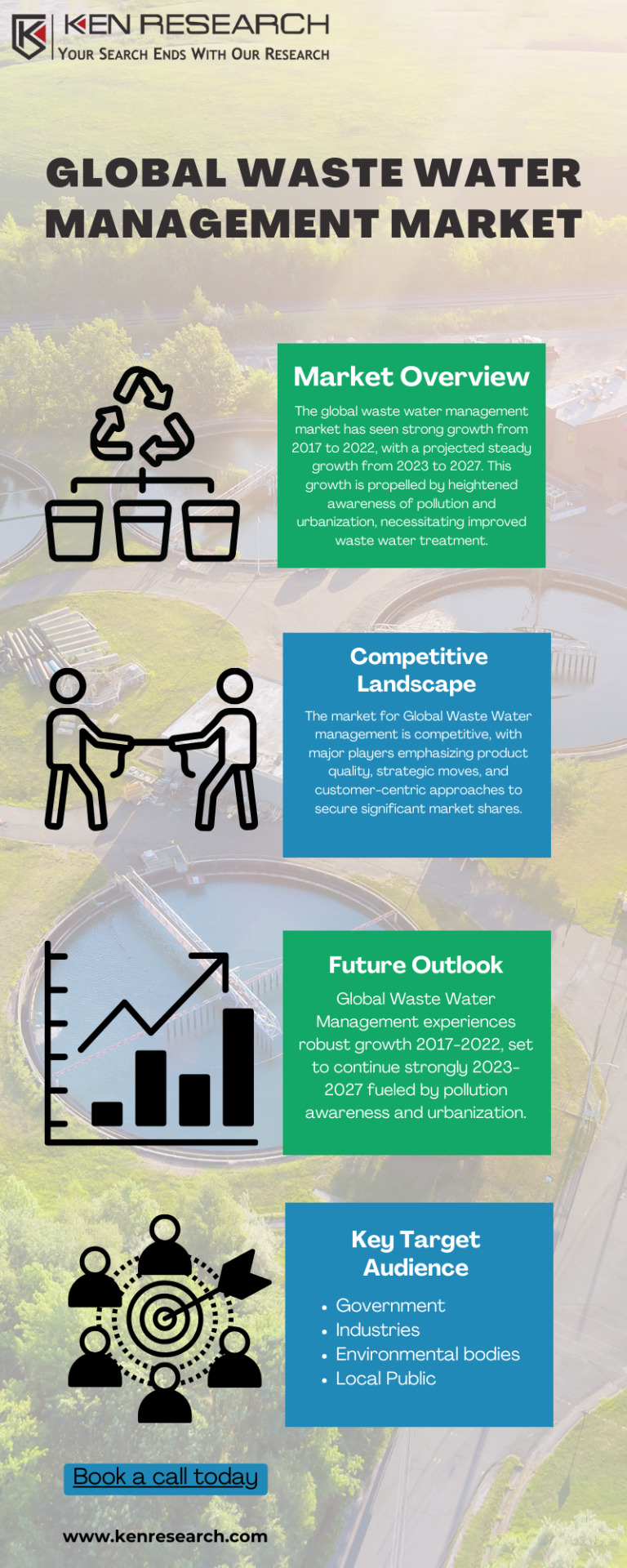
Worldwide Water Waste Management Market 2023-2027
#Global Waste Water Management Market#market research#Global Industrial Waste Water Management Market#Global Sewerage Water Management Market#Global Waste Water Management Market Opportunities#Global Effluent Water Management Market
0 notes
Text
#We are best manufacturer and Service Provider of ETP & STP Equipment#Bio Gas | Water | Sewage | Wastewater Treatment Plant#Industrial | Solid Waste Management Services in Pune#Maharashtra#India
0 notes
Text
Waste Water Management in QLD
Your trusted environmental engineering consultancy in South East Queensland. We specialize in water and wastewater engineering solutions, offering expert services to optimize your water management needs. From efficient wastewater treatment to sustainable water solutions, count on our expertise. Contact us today Profile
#Water and Waste Water Treatment Services#Industrial Water/ Trade Waste#Water Efficiency Management#Compliance and Sustainability Auditing
0 notes
Text
#water treatment plant#sewage treatment plant in india#waste management#wastewater#water softener#industrial ro plant manufacturer company in gurgaon
0 notes
Text
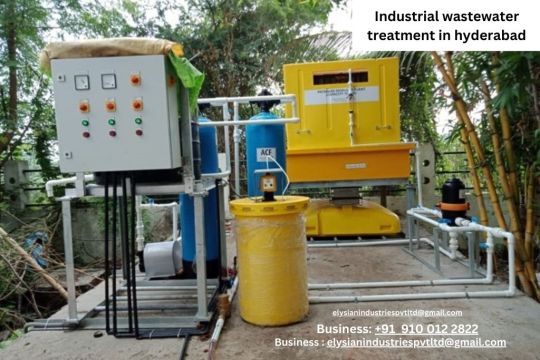
#etp plant#etp plant cost#stp plant#stp plant cost#Wastewater treatment plant#Sewage treatment plant#Industrial wastewater treatment#Effluent Treatment Plant#Wastewater treatment company in hyderabad#water treatment solutions#solid waste management solutions#Sewage treatment plant in hyderabad#Wastewater treatment plant suppliers
0 notes
Text
Water and Wastewater Treatment Industry ESG Thematic Report, 2022: Astra ESG Solutions
San Francisco, December 20, 2022: With the world observing unprecedented challenges and the influence of climate change, the water and wastewater treatment industry size could be pronounced on the back of bullish investment in a sustainable future. Developments of environmental, social, and governance practices will help stockholders map impacts to their value chain, enable performance reporting and tracking and exhibit a corporate commitment to sustainable growth. Industry leaders are expected to shift their attention to the impact of water shortages, soaring prices, and surging regulations in their decision-making. Stakeholders are emphasizing 4R—reduce, reuse, recycle and reclaim—to streamline wastewater treatment and propel ESG compliance. Investors and consumers are poised to focus on the ESG profile and minimize operational risks amidst concerns about pollution, energy consumption, climate change, and the rising usage of chemicals.
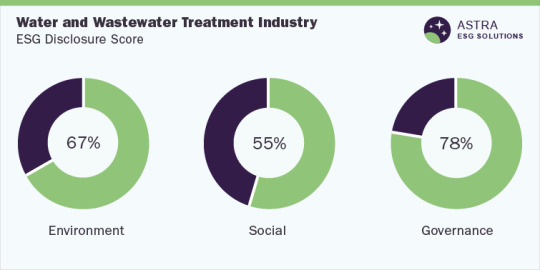
The World Resources Institute forecasts a 56% deficit of freshwater by 2030, compelling businesses to propel the management of water and wastewater treatment. The prevalence of water pollution and its impact on global health has furthered the need for setting and achieving ESG goals. Sustainable wastewater management has gained ground amidst an uptake in wastewater generation. For instance, in 2021, Merck Group produced around 13.3 million cubic meters of wastewater, while discharging approximately 9.5 million cubic meters of freshwater in surface waters. The company aims to minimize possibly harmful residues in wastewater by 2030. The surge in municipal wastewater and the prevalence of sewage have prompted stakeholders to emphasize environmental, social, and governance pillars to keep up with the global trend.
Read more form the Water and Wastewater Treatment Industry ESG Thematic Report, 2022, published by Astra ESG Solutions
Environmental Perspective
Investors, suppliers, and other stakeholders have prioritized the upsides of water treatment projects to minimize power consumption, reduce water use from the local supply, free up space and reduce off-spec discharge risk. Although the majority of Americans have access to safe drinking water, harmful contaminants, including copper, lead, and arsenic, have been found in tap water. Leading companies are expected to further their efforts to contain negative environmental impacts from chemical spills, wastewater discharges, or water quality violations. For instance, California Water Service Group asserts its customers saved 47.8 million gallons of water in 2021 with increased saving efficiency measures. The public utility company assesses treatments on an industry-wide level, conducts audits, and undertakes regular maintenance of wastewater treatment systems.
ESG considerations have become a management priority with wastewater reduction slated to foster the company’s environmental profile. Xylem, Inc. has set a bullish goal to recycle 100% of its wastewater by 2025. In May 2022, it introduced a smart wastewater treatment solution that can reduce operating costs and energy use by 25%. In April, the company announced an infusion of USD 20 million to foster innovative water and industrial technologies. Besides, Ecolab claims it helps customers manage 1 trillion gallons of water through the use of real-time data, management software tools, innovative technologies, and treatment services. It also aims to conserve around 300 billion gallons of water annually by 2030. The company has also designed a wastewater treatment station in France to minimize water discharge to the city sewer network by approximately 80%, enabling the facility to reuse around 20 million gallons of water each year.
Social Perspective
Stakeholders have furthered their efforts on workforce development, diversity, equity, safety, and health. Sustainable investors are likely to respond to the expanding scope of the social pillar as businesses and technological advances become interconnected. ESG-focused company Xylem remained at the helm with a roughly 80% score. The growth trajectory is partly attributed to robust human rights policies. Meanwhile, Ecolab has furthered its commitment to propel diversity and equity through its 2030 Impact Goals. The company contemplates augmenting its management-level gender diversity to 35% and management-level ethnic diversity to 25%. It has emphasized educating interview teams, recruiters, and hiring managers on bias, diversity, and inclusion. For instance, while 35% of all new management-level hires in the U.S. were people of color in 2021, globally around 38% of all new management-level hires were women.
Industry participants are striving to retain and attract talent—Veolia invested in an ambitious policy as the average number of hours of training per employee touched 21 in 2021. It aims to minimize the frequency of workplace accidents from 6.65 in 2021 to 5 by 2023. Besides, Ecolab hired 8,905 new employees in 2021, while the average turnover rate was pegged at 17.4%. Meanwhile, Xylem provided 12.61 hours of training per employee in 2021 and has introduced employee training programs, such as Employee Network Groups, Ignite, and Watermark. It has strengthened workplace safety by introducing safety alerts and expanding digitally connected safety programs. According to Xylem Sustainability Report 2021, 49 of its facilities witnessed zero accidents in 2021, along with Querétaro, Mexico, São Paulo, Brazil, and Bogotá, Colombia facilities achieving five years without any recordable cases.
Understand how key industry participants like Xylem, Inc., Ecolab, Inc., and Veolia Environment S.A. are identifying, analyzing and mitigating ESG risks and ensuring compliance
Governance Perspective
Leading players have pushed the bar with growing traction for strong corporate governance that bolsters accountability, underpins the long-term interest of shareholders, and propels brand position. To illustrate, Xylem’s Board of Directors (end of 2021) comprised ten members, and all except CEO were independent. The soaring significance of ESG encouraged the organization to form the ESG Reporting Working Group to advise on, review and guide the evolution of its approach to ESG disclosure. It has also adopted 2025 Sustainability Goals to provide 35% of women with leadership roles by 2025.
Robust corporate governance is paramount to growing and sustaining businesses as companies seek to comply with core values and commitment to ethical standards and board diversity. For instance, 5 out of 12 California Water Service Group directors are women and the organization has 10 out of 12 independent director nominees. The utility company showed traction for a host of public policy initiatives in 2021, including the provision of up to USD 55 billion to address water infrastructure challenges.
According to Astra’s scoring model, Dupont de Nemours, Inc. was placed at the top in terms of corporate governance. The trajectory is mainly attributed to the governance standards and credibility among stakeholders—more than 90% of the board comprises independent directors. Furthermore, it has set the Sustainability Oversight Committee to review and approve sustainability policies and initiatives and oversee the Strategic Leadership Council’s work. In doing so, the company has embedded ethics and sustainability across global supply chains to propel a circular economy, climate change, and diversity.
Well-established players and new entrants are expected to propel innovations and sustainability portfolios in treatment, water reuse, and -loss. Stakeholders are touted to expedite technological advancements, mergers & acquisitions, and commercial and social innovations. To illustrate, in August 2022, Veolia announced it inked a merger agreement with Vigie SA (previously known as Suez SA). While the actual merger took place in January 2022, the final merger was scheduled for October 2022.
With industry leaders emphasizing the reuse and recycling of wastewater, prevailing dynamics are likely to reshape the ESG landscape. An emphasis on cost reduction in wastewater treatment plants could help customers keep up with their operational budget. For instance, digitization is likely to help companies cash in on water, cost, and energy efficiencies. Advanced solutions can provide real-time data to offer recommendations and suggestions to optimize aeration and water usage. Accordingly, the water and wastewater treatment market size could garner USD 41.8 billion by 2030. Bullish demand for wastewater treatment technologies and rigorous regulations will provide tailwinds to the global landscape.
Browse more ESG Thematic Reports from the Utilities Sector, published by Astra – ESG Solutions
About Astra – ESG Solutions By Grand View Research
Astra is the Environmental, Social, and Governance (ESG) arm of Grand View Research Inc. – a global market research publishing & management consulting firm.
Astra offers comprehensive ESG thematic assessment & scores across diverse impact & socially responsible investment topics, including both public and private companies along with intuitive dashboards. Our ESG solutions are powered by robust fundamental & alternative information. Astra specializes in consulting services that equip corporates and the investment community with the in-depth ESG research and actionable insight they need to support their bottom lines and their values. We have supported our clients across diverse ESG consulting projects & advisory services, including climate strategies & assessment, ESG benchmarking, stakeholder engagement programs, active ownership, developing ESG investment strategies, ESG data services, build corporate sustainability reports. Astra team includes a pool of industry experts and ESG enthusiasts who possess extensive end-end ESG research and consulting experience at a global level.
For more ESG Thematic reports, please visit Astra ESG Solutions, powered by Grand View Research
Need expert consultation around identifying, analyzing and creating a plan to mitigate ESG risks related to your business? Let Astra know your concerns and queries, and we can help!
#Water and Wastewater Treatment Industry ESG#Water and Wastewater Treatment Industry#Water and Wastewater Treatment Market#industrial water and wastewater treatment#water waste management companies#ESG
0 notes
Text
Industrial Effluent Treatment Plant Solutions | Wipro Water
Industrial Effluent treatment plant (ETP) is a facility to remove different types of wastewater contamination in Industries, such as solids, oil, grease, biodegradable organics, toxic materials, acids, and alkalies.
#wastewater treatment process#industrial wastewater treatment plant#industrial wastewater treatment#industrial effluent management#industrial effluent treatment#industrial waste water management
0 notes
Text
6th Meeting, 15th Session of the Expert Group on Resource Management.
Session 2: Decision Support - 1
Chair: David MacDonald
Agenda item 7.1: Social and environmental considerations
Carrie McClelland, Chair, Social and Environmental Considerations Working Group and Colorado School of Mines
Classifying the production of lithium, caesium and tantalum from the Tanco Mine, Manitoba, Canada, according to UNFC – A Case Study (ECE/ENERGY/GE.3/2024/12)
Tania Martins, Chief Geologist, Manitoba Geological Survey
Wintershall Dea - UNFC-UNRMS Case study
Matthias Hartung, Chair, UNFC Adoption Group and Wintershall Dea
Fraguva Energy (SME) - UNRMS Case Study
Gaspar Franco-Hernandez, Deputy Director of Planning and Strategic Regulation, Fraguva Energy
Why investment is needed NOW on both "ends" of the Critical Raw Materials circularity ring - and how UNRMS can help
Christophe Xerri, President and Senior Consultant, The Sailing Brain Consulting
Resource Management Young Member Group (EGRM-15/2024/INF.2) -
1. Critical Minerals for the Sustainable Energy Transition: A Guidebook to Support Intergenerational Action – Official Launch
Bianca Derya Neumann (Moderator), Chair, Resource Management Young Member Group (RMYMG)
Jodi-Ann Wang, Project Lead, RMYMG and Policy Analyst, LSE Grantham Research Institute
Vadim Kuznetsov, Project Lead, RMYMG and Director, Sustainability and Climate Initiatives, BRICS Youth Energy Agency
Gabriele Romeo, Master's student of International Energy Transitions, Paris School of International Affairs, Sciences Po
Radia Sedaoui, Chief of Energy Section, Climate Change and Natural Resource Sustainability Cluster, UNESCWA
2. Panel: Driving Intergenerational Justice in Critical Raw Materials Management: Potential of Demand-side Solutions
Bianca Derya Neumann (Moderator), Chair, Resource Management Young Member Group
Diego Marin, Policy Officer for Raw Materials and Resource Justice, Policy Division, European Environmental Bureau
Gyubin Hwang, Global Coordinator of the Children and Youth Major Group to UNEP
Natalia Mrówczyńska, Board Member, ReGeneration 2030
Watch the 6th Meeting, 15th Session of the Expert Group on Resource Management!
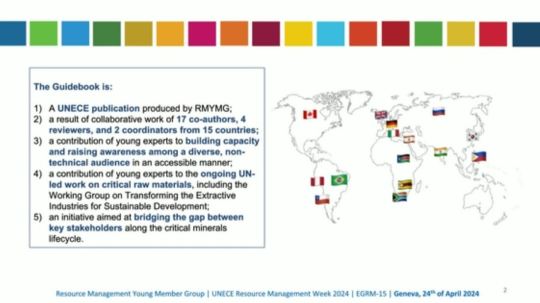
#resource management#expertgroup#extractiveindustries#egrm15#United Nations Resource Management System (UNRMS)#United Nations Framework Classification for Resources (UNFC)#Assuring sustainability in resource management#Expert Group on Resource Management#industrial water#mining wastes#sustainable water management#sustainable energy
0 notes
Text
"The Blue Revolution: How Waste Water Treatment Companies in India are Changing the Landscape"
India, with its rapidly growing population and urbanization, is facing significant challenges in managing its water resources. The country's water bodies are increasingly polluted due to industrial waste, sewage, and agricultural runoff, leading to severe environmental and health issues. In response to these challenges, waste water treatment companies in India are playing a crucial role in revolutionizing the way water is managed and treated.
Addressing Water Pollution
One of the primary focuses of waste water treatment companies in India is to address water pollution. These companies employ advanced technologies and processes to treat waste water, removing harmful contaminants and pollutants. By doing so, they help in protecting the environment and public health.
Innovative Technologies
Waste water treatment companies in India are adopting innovative technologies such as membrane filtration, reverse osmosis, and ultraviolet disinfection to treat waste water effectively. These technologies are not only efficient but also environmentally friendly, ensuring that treated water meets the required quality standards.
Compliance with Regulations
These companies also play a vital role in ensuring compliance with water quality regulations set by the government. By treating waste water to meet these standards, they help in preventing further degradation of water bodies and ensure a sustainable water supply for future generations.
Resource Recovery
Another important aspect of the work done by waste water treatment companies in India is resource recovery. These companies are increasingly focusing on recovering valuable resources such as water, nutrients, and energy from waste water. By doing so, they not only reduce the strain on natural resources but also contribute to the circular economy.
Water Reuse
One of the key strategies employed by waste water treatment companies is water reuse. Treated waste water can be used for various non-potable purposes such as irrigation, industrial processes, and groundwater recharge. This helps in conserving fresh water resources and reducing the demand on conventional water sources.
Energy Generation
Many waste water treatment plants in India are also exploring the potential for energy generation from waste water. Technologies such as anaerobic digestion can be used to convert organic matter in wastewater into bio gas, which can be used as a renewable energy source.
Conclusion
In conclusion, waste water treatment companies in India are playing a pivotal role in the country's water management efforts. Their innovative technologies, focus on compliance, and emphasis on resource recovery are helping to address the challenges of water pollution and scarcity. As India continues to urbanize and industrialize, the role of these companies will become even more critical in ensuring a sustainable water future for all.
If You Want to Read More About India's Waste Water Treatment then Visit the Site: Jasmino
#technology#industry#manufacturer#manufacturing#watertreatment#wastewatertreatment#safe drinking water#watermanagement#manufacturing industry#waste management
0 notes
Text
Chicago, Feb. 15, 2024 (GLOBE NEWSWIRE) -- The global Industrial Filtration Market size is expected to grow from USD 33.5 billion in 2022 to USD 45.2 billion by 2027, at a CAGR of 6.2% according to a new report by MarketsandMarkets™.
#Industrial Filtration Market#Industrial Filtration#industrial#industrialization#Filtration#water filtration#energy#energia#power generation#utilities#utility#waste management#wastewatertreatment#zero waste#sustainability#wastewatermanagement#wastewater treatment#industrial wastewater treatment#filter press#bag filter#enviromental#clean environment#clean energy
0 notes
Text
Worker admits dumping raw waste into Jackson water system
Worker admits dumping raw waste into Jackson water system
JACKSON, Miss — An employee of a Mississippi wastewater hauling company pleaded guilty in federal court Tuesday for his part in illegally discharging industrial waste into the capital city’s sewer system.
William Roberts, an employee of Partridge-Sibley Industrial Services, admitted to supervising the improper disposal of industrial waste at a commercial entity in Jackson. As a result of…
View On WordPress
#Business#Climate and environment#Corporate crime#Corporate legal affairs#Corporate news#ENV#Environment#Industrial waste#Natural resource management#Waste disposal#Waste management#Wastewater#Water environment#Water management#Water quality
0 notes